#The stag king
Explore tagged Tumblr posts
Text
When I brewed Asra's backstory, and included the Stag King as the constant romantic torment of her life (for ther past 140 years of her life, more or less), I was deadly set him being a dakr-haired archfey, all broody.
BUT THEN.
I watched "The Hobbit" with my husband yesterday night (part of it anyway), and decided that FUCK IT.
THE STAG KING WILL LOOK *EXACTLY* LIKE THRANDUIL.



He fits perfectly for how I imagine The Stag King: cunty, serving looks for days, a bit of an ass (help me say "a bit"), ethereal because DUH, we are talking archfey here, but all up in his feelings for Asra (also gonna bring those scars he has in play because fml I can never have enough tragic characters in my roster).
If mother and daughter could ever sit and talk for a coffee, they would have stories to share and advices to give to each other lololol.
I like that the main difference between Aranea's and Asra's situation with their two suitors is both parallel and going into different directions at the same time: Aranea sought Mephisto out, she eventually leaned into his charm and power and fully embraced the corruption he brought onto her; Asra, instead NEVER sought the Stag King in the first place, she stumbled into his dreamscape by ACCIDENT (thank goodness for Hiraeth and her cold iron dagger), and while he is trying to actually have her make a pact with him, she is very much like "NOPE, THANK YOU VERY MUCH, I AM GOOD." (Papa Halsin warned her TIMES AND TIMES AGAIN about the dangers of making pacts with creatures, be them fiends or archfey. He never explained it to her in detail, but that's exactly how she ended up without a mother).
So yeah, this is the Pre-Coffee Morning Bulletin, brought to you by a very sleep-deprived Nemo 😂😂😂
#Nemo Babbles#OC Lore#The Stag King#OC: Asra Silverbough#I am leaning into my not so healthy relationships era lolol#Honestly they are just fun to explore#I wouldn't touch them with a 10 ft pole if they were to happen IRL#but on paper????#GIMME#also yes#THOSE ANTLERS CROWN THAT THRANDUIL WEARS IS WHAT SOLD IT TO ME#and hilariously enough in the movies WHO IS THE ONE PLAYING THORIN?????#Catch Aranea stumbling into one of Asra's dreams in the Dreamscape by mistake with Mephisto at her tail all dressed up as Thorin#and catch him Bitching with the Stag King because yes#ok now I seriously need a coffee#my head is exploding
11 notes
·
View notes
Text

The Trophy Hunter
Their crowns may gleam, but they are dust, Built on tales and borrowed trust.
1K notes
·
View notes
Text
Ok, so I'd like to add someone who also was part of this big current, but isn't that well known nowadays: Carlo Gozzi was a venetian writer who, between 1761 and 1777 collaborated with the theatre company of Antonio Sacchi. He was strongly against the innovations of the Enlightenment in society and literature, and tried to save the italian theatre practice of the “Commedia dell’arte”, which lost popularity against new forms of drama.
He found a way to do it with his “fiabe teatrali”, theatre fairy tales, ten comedies that were inspired by folk and literary tales, taken from Basile, Straparola, Sarnelli, but especially the french “cabinet des Fées”, particularly the ones taken from “1001 days”. These pieces would use fantastical settings typical of the Commedia dell’arte, in which the mask characters could improvise comedic scenes, while he also wrote in scathing satires of contemporary literary and social fashions.
Gozzi was particularly against Carlo Goldoni, who tried to modernize italian theatre with more realism (and who is the only author among these who is still well-known and popular in Italy today), and Pietro Chiari, who used very melodramatic scenes and flowery language. Caricatures of these two even appear in the first fairy tale, “the love for the three oranges: Goldoni appears as the down-to-earth magician Celio, who is lessclever than he thinks, and Chiari appears as the snobbish and depressing Morgan le Fay.
The crazy thing is that this project really worked! By 1762 the Sacchi company had already overshadowed Goldoni and Chiari, and until 1765 they were still incredibly succesful in Venice. The popularity was also because of the imaginative special effects for the time, especially used in the transformation scenes.
While in Italy he was quickly forgotten, Gozzi enjoyed a lot of popularity during the 19th century in Germany, by Lessing, Schlegel, Goethe and Schiller and during the 20th century in Russia. Many adapted his fairy tales for the stage, like Ludwig Tieck, who used “la Zobeide” in his opera “Blaubart”, Hoffman, for his “Princess Brambilla”, Prokofyev for “L’amour des trois oranges”, Hans Werner Henze’s “König Hirsch” and many others.
But certainly Gozzi’s most influential piece was his retelling of Turandot, which inspired Giacomo Puccini’s last unfinished opera.
@infinitelytheheartexpands
A Fairy Tale Rabbit Hole
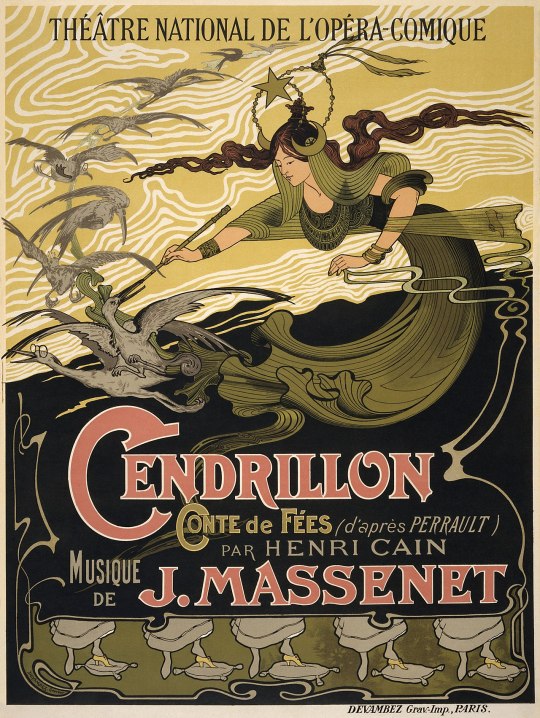
Snow White and the Seven Dwarfs is the movie that it started it all for Disney Animation and it's the most influential fairy tale movie ever. Its tropes and its tone still inspires fairy tale media to this day, either as parodies, or homages.
But what less people know is that Walt Disney was inspired to make this movie because of a peculiar silent movie that he watched when he was a teenager.
That movie was Snow White from 1916. Its writer, Winthrop Ames, adapted it from his own Broadway play. An example of American fairy tale theater.
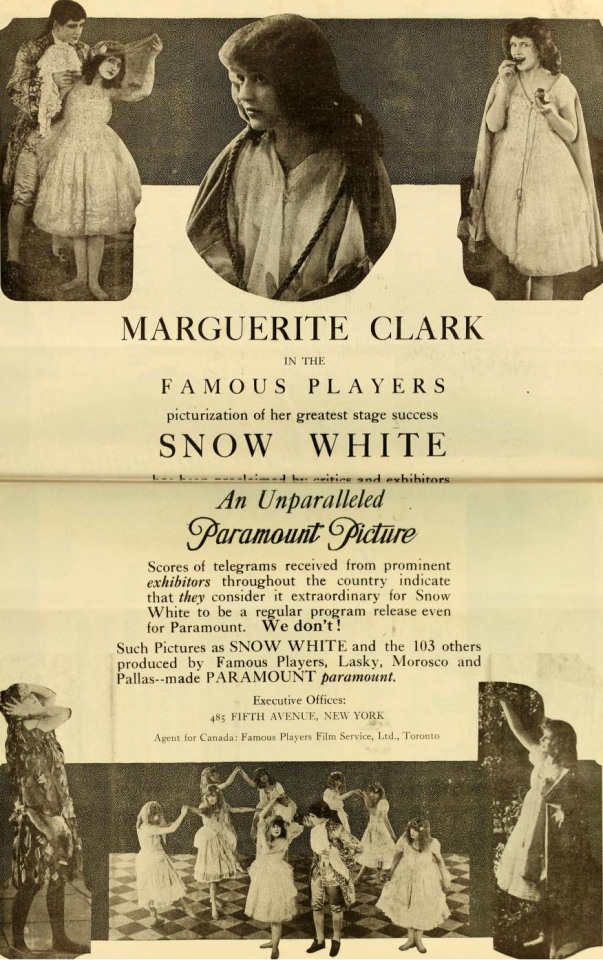
This kept me thinking.
The Wizard of Oz is one of the most iconic fantasy films of all time, and it was made in direct response to Snow White. What people don't know is that the scene where Glinda saves the gang from the deadly poppies with a snowstorm came straight from a fairy tale musical from 1902. It came from The Wizard of Oz, a fairy tale musical "extravaganza", with direct input from L. Frank Baum, only two years after the original novel.
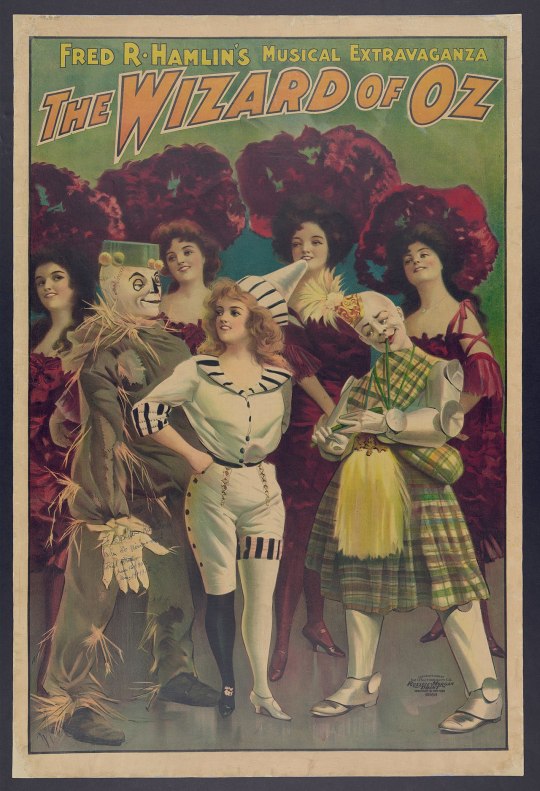
Actually, stage musicals seem to take a slight part in the creation of Oz. The Marvellous Land of Oz, the sequel, seems to be inspired by this stage culture. General Jinjur and her army dresses like chorus girls, Ozma/Tip may be inspired by the crossdressing in children roles, and this was the book's dedication:
"To those excellent good fellows and comedians David C. Montgomery and Frank A. Stone whose clever personations of the Tin Woodman and the Scarecrow have delighted thousands of children throughout the land, this book is gratefully dedicated by THE AUTHOR"
These were actors of the 1902 stage show.
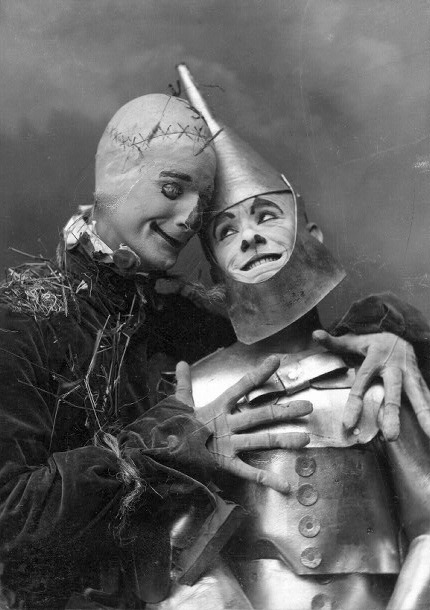
Two years later, on 1904 Peter and Wendy premiered. This play is also one of the most famous children stories ever. Walt Disney himself acted as Peter in a local production of it and Tinkerbell quickly became a mascot for the studio.
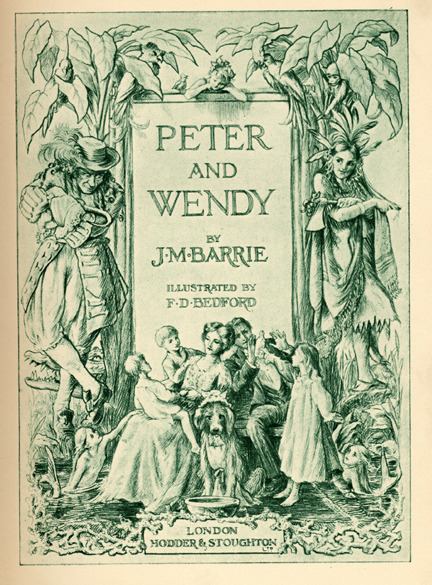
This all led me to think more about fairy tale theater specifically.
Since the ending of the 18th century and through the 19th century, a genre of stage show developed through Europe. It was mostly comedic and light-hearted, mainly inspired by fairy tales, and it was geared towards children and families. It involved lavish fantasy spectacles told through operas, ballets, and what we today would call "musical theater".
It had many different names and variations depending on the country.
On England, it evolved through the pantomimes and it became a Christmas tradition.
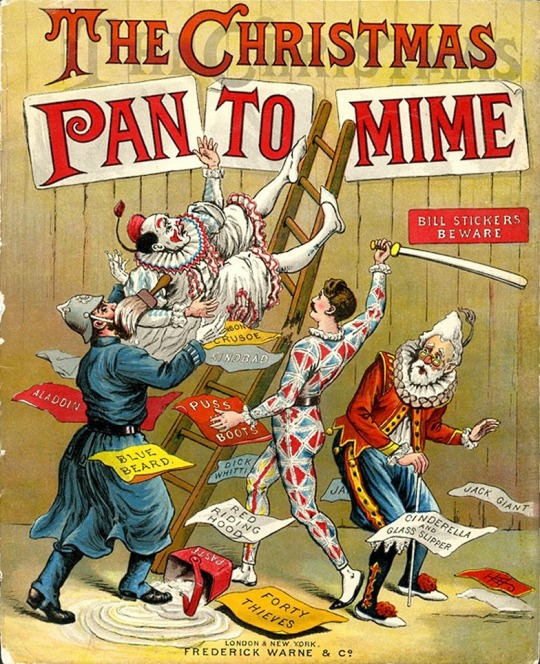
In Russian, it was mainly through ballet, called the ballet-féerie, often considered a lower-class, more commercialized entertainment than traditional ballet. Tchaikovsky's Sleeping Beauty and The Nutcracker are among some of them. Sleeping Beauty would later inspire Disney's telling of the story.
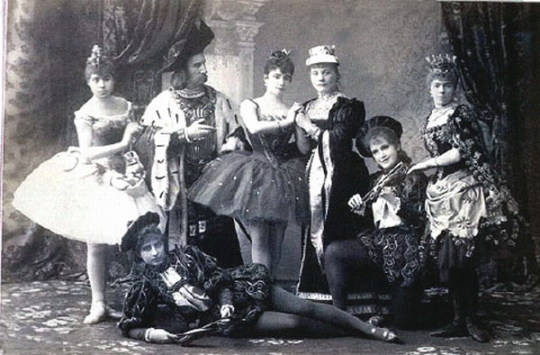
In France they were called Féerie, and it was a mix of music, dancing, pantomime, acrobatics, and stage effects. It influenced the development of burlesque, musical comedy and film.
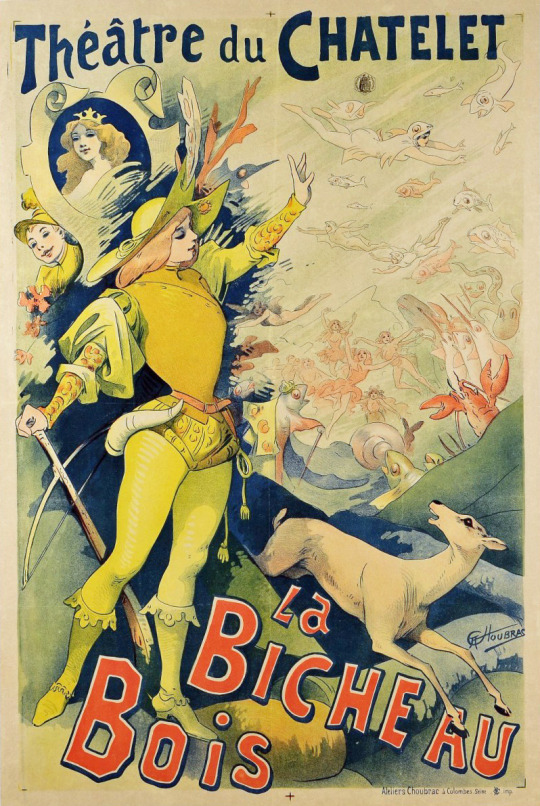
From Wikipedia:
With his 1899 film version of Cinderella, Georges Méliès brought the féerie into the newly developing world of motion pictures. The féerie quickly became one of film's most popular and lavishly mounted genres in the early years of the twentieth century, with such pioneers as Edwin S. Porter, Cecil Hepworth, Ferdinand Zecca, and Albert Capellani contributing fairy-tale adaptations in the féerie style or filming versions of popular stage féeries like Le Pied de mouton, Les Sept Châteaux du diable, and La Biche au bois. The leader in the genre, however, remained Méliès,[37] who designed many of his major films as féeries and whose work as a whole is intensely suffused with the genre's influence.[38]
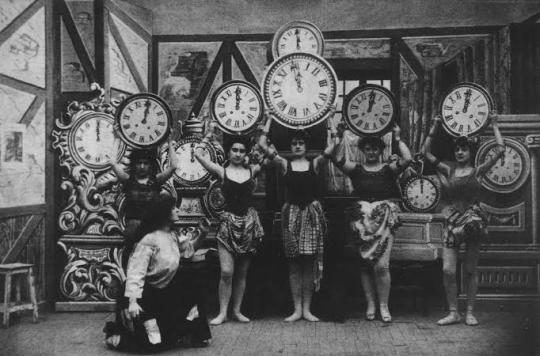
Once you realize a huge chunk of fairy tale media has roots in family friendly stage shows from 19th century, a lot of it started making sense.
The focus on romance, the focus on damsels in distress, prevalence of lighter tones, the everlasting connection to music and dance.
They may be the main reason why some fairy tales are more famous than others. Some became source material for a continuous stream of operas, operettas, musical extravaganzas, ballets, plays, and others simply not.
And besides the Victorian Era storybooks that bowdlerized fairy tales for children, I think this whole genre of the theater was responsible to firmly establish fairy tales as a child friendly media, decades before Disney ever released Snow White to cash in that nostalgia.
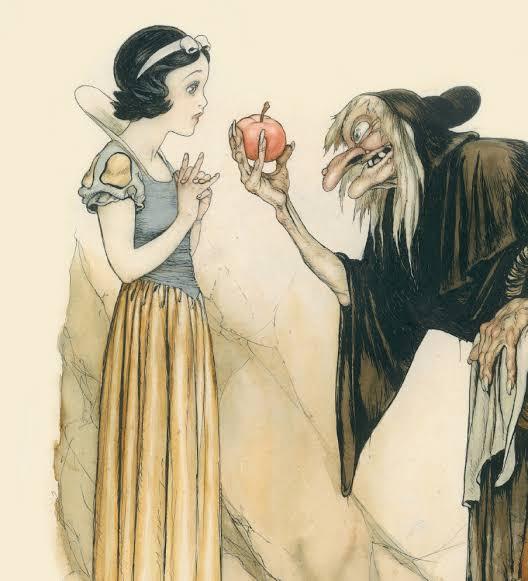
If you have something to add or if I just got something wrong, feel free to correct me.
@ariel-seagull-wings @princesssarisa @adarkrainbow @the-blue-fairie @theancientvaleofsoulmaking @natache @tamisdava2 @thealmightyemprex
#carlo gozzi#l’amore delle tre melarance#L’amour des trois oranges#Il corvo#La donna serpente#Il re cervo#König hirsch#The stag king#turandot#La zobeide#I pitocchi fortunati#Il mostro turchino#L’augellino bel verde#The green bird#Der schöne grüne vogel#Zeim re de’ geni#fairy tales#fairy tale retelling#fairy tale theatre#commedia dell'arte
61 notes
·
View notes
Text

Royal
314 notes
·
View notes
Text
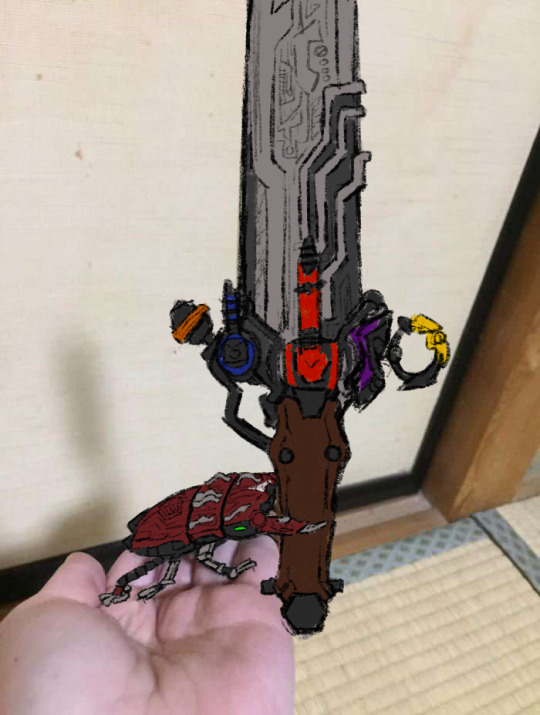
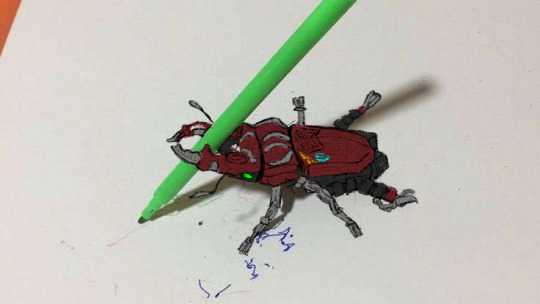

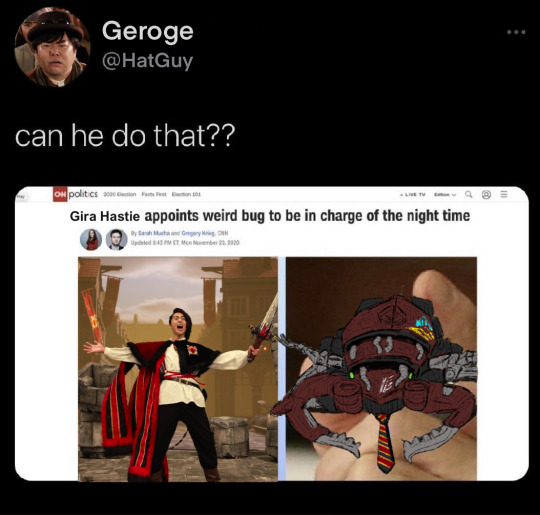



kuwagon compilation
bonus

#ohsama sentai kingohger#king ohger#gira hastie#god kuwagata#bugs#insects#post tag#art tag#i think half of these are the same dorcas beetle lmao#the weird bug in charge of the night time isnt even a stag its a water bug
268 notes
·
View notes
Text

The Hounds of Nakkiga
Jarnulf and Salt are in a bit of trouble, but i'm sure they'll be just fine! Not an actual scene from any of the books, but I got this image in my head and just had to draw it.
I feel like I should have made the background a little darker, the hounds aren't quite luminous enough for my liking.
#the last kings of osten ard#the navigators children#memory sorrow and thorn#jarnulf#tad williams#digital painting#digital art#my art#the stag speaks
45 notes
·
View notes
Text

545 notes
·
View notes
Text

Líf and the King of the Forest.
#my art#illustration#my OC#líf#king of the forest#animal#stag#deer#fantasy#winter#forest#woods#snow#artwork#artist on tumblr
61 notes
·
View notes
Text
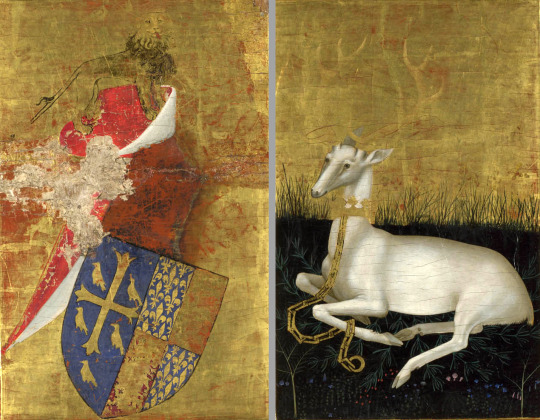

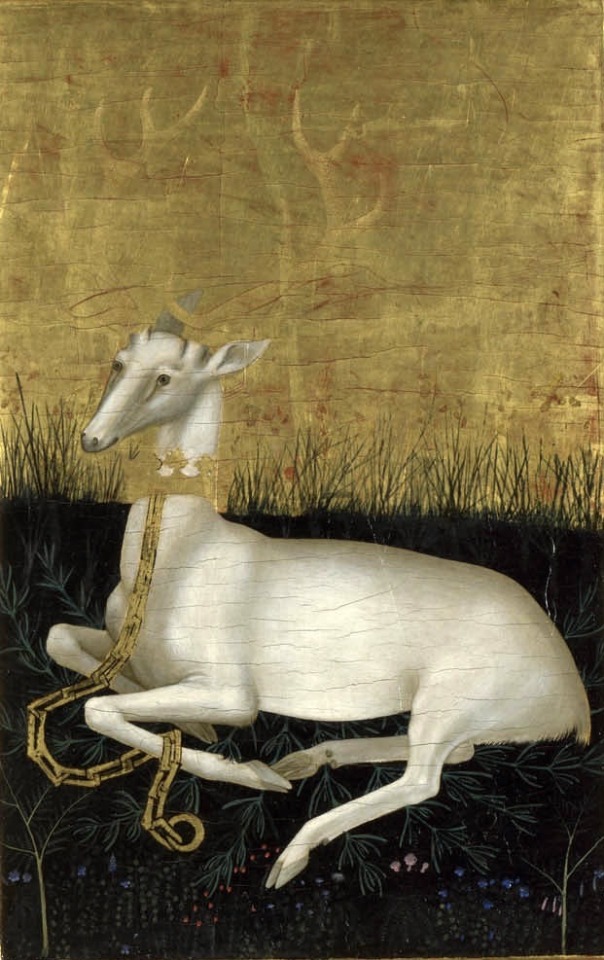
The Wilton Diptych (1395–1399) — Coat of arms of Richard II (Arms of England of 1340 impaled with the mythical arms of Edward the Confessor), with Richard II's white hart badge.
#medieval#middle ages#mediaeval#art#england#english#altarpiece#richard ii of england#edward the confessor#coat of arms#heraldry#white hart#hart#stag#history#anglo saxon#anglo saxons#king#saint#christianity#christian#religious art#religion
147 notes
·
View notes
Text

First Page || Prev Page // Next Page
Tha boi is back!
#empires smp#empires s1#empires scott#empires xornoth#champion of exor au#scott smajor#dangthatsalongname#my art#stag brothers#btw for context xornoth is king while scott is just the prince#but he does like to get scott involved in state affairs and often asks him to look at minor stuff for him or ask his opinion
61 notes
·
View notes
Text









First pattern from Cross Stitch Patterns, Revised Edition edited by Thelma M. Nye, 1969 (personal library)
Second pattern from Cross Stitch Patterns, Original Edition edited by Thelma M. Nye, 1969 (personal library)
Arrangement of folk elements is my own design
24 notes
·
View notes
Text
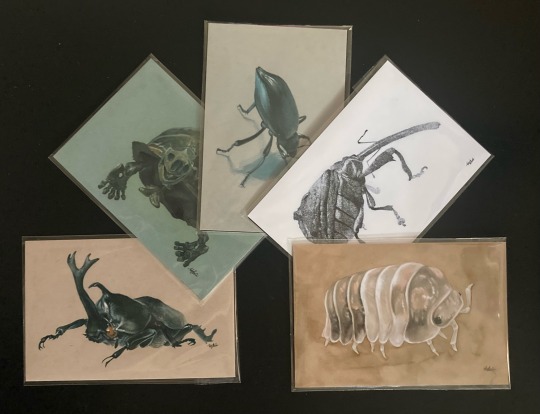
The 4" by 6" prints are ready to go! All prints are signed and sealed for extra protection. Thanks again to Mikal Bae for printing!
#illustration#scientific illustration#insect#entomology#paleontology#beetle#isopod#panda king#roly poly#stag beetle#Coleoptera
94 notes
·
View notes
Photo
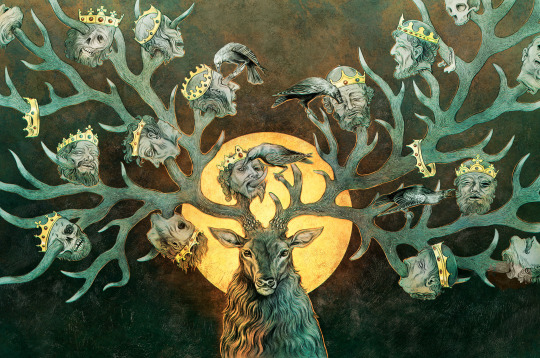
The Trophy Hunter
Very proud of this piece and that I finally managed to finish it :) Most of my artworks just need the right time.
I guess my interpretation of 'Ego death' :)
Prints: https://www.etsy.com/ArtofMaquenda/listing/1482634191
Funny thing a crown can do It makes one think they're better than you They think their circlet makes them God That they won't be burried beneath the sod So remind them with a blade or mace That they lack any divine grace. -ThePoetGoblin (on Twitter)
#Stag#deer#king#kings#painting#forest god#antlers#artofmaquenda#macabre#morbid#decay#crows#ego death
2K notes
·
View notes
Text
Bites you, bites you, bites you.




The hilarity that is a popular ship being represented by bugs where one would be prey to another but fits so perfectly 😂💛💜
#Himeno pursuing Rita by luring them in with what they like like the orchid mantis she is#i have no idea how intentional it was for this ship but I FCKING LOVE IT#not sure about another ship bc i dont think tarantulas eat stag beetles#short fic#short one shot#kingohger#king ohger#ohsama sentai kingohger#rita kaniska#rita kanisuka#himeno ran#hymeno ran#himerita#hymerita#kingoh doodles#super sentai
47 notes
·
View notes
Text
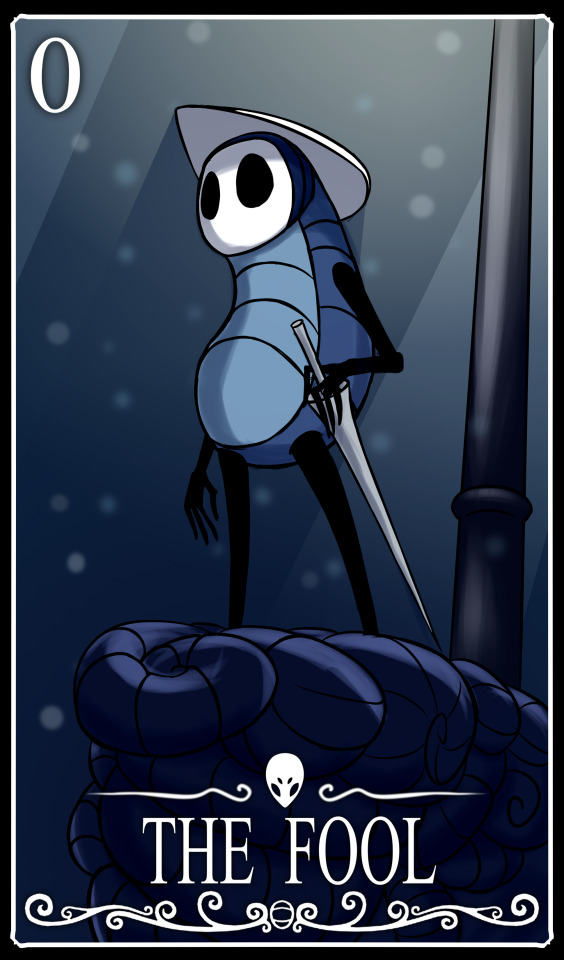


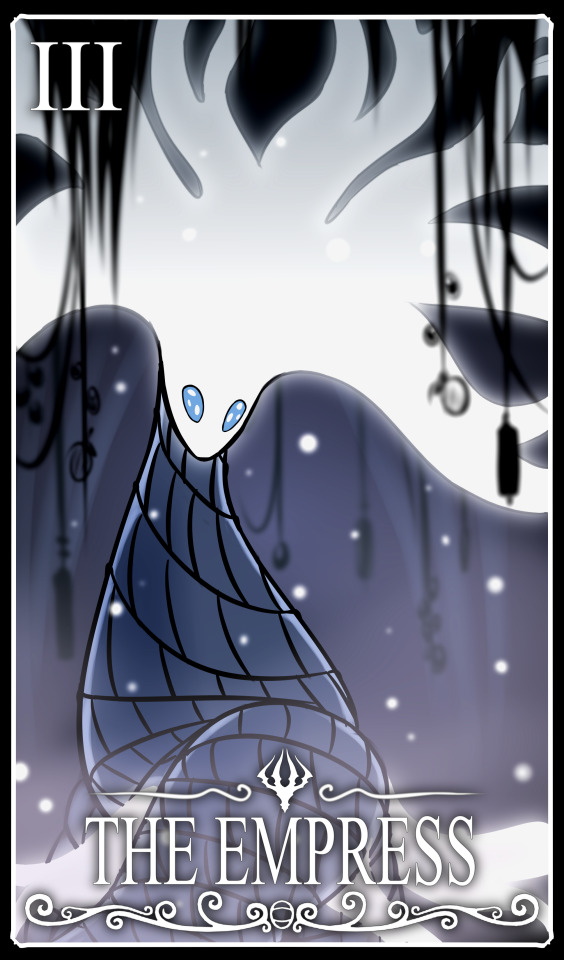
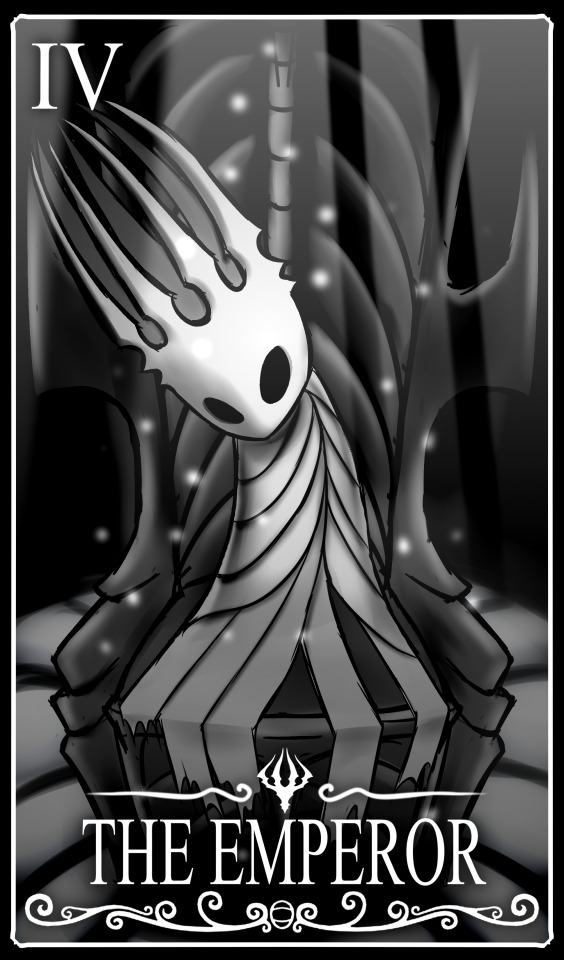
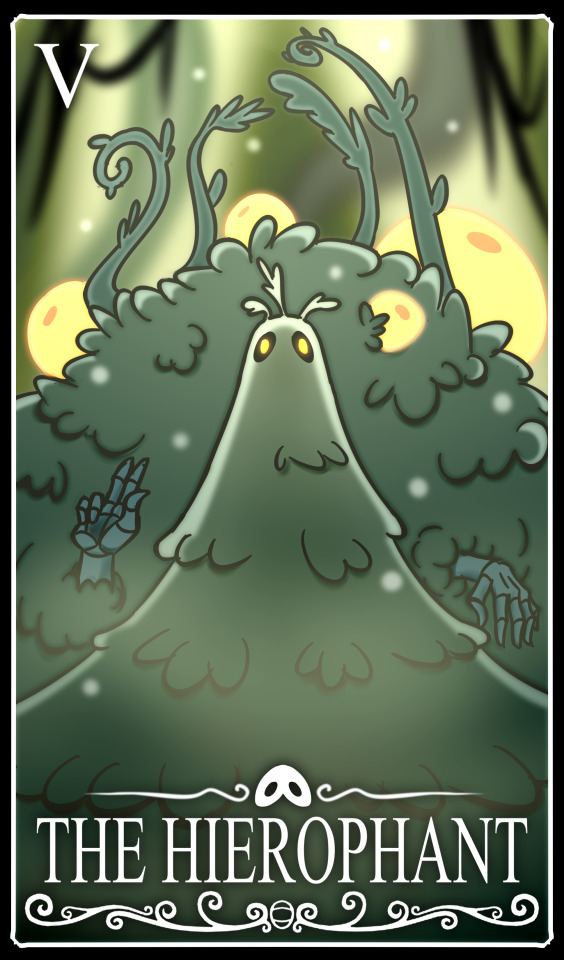

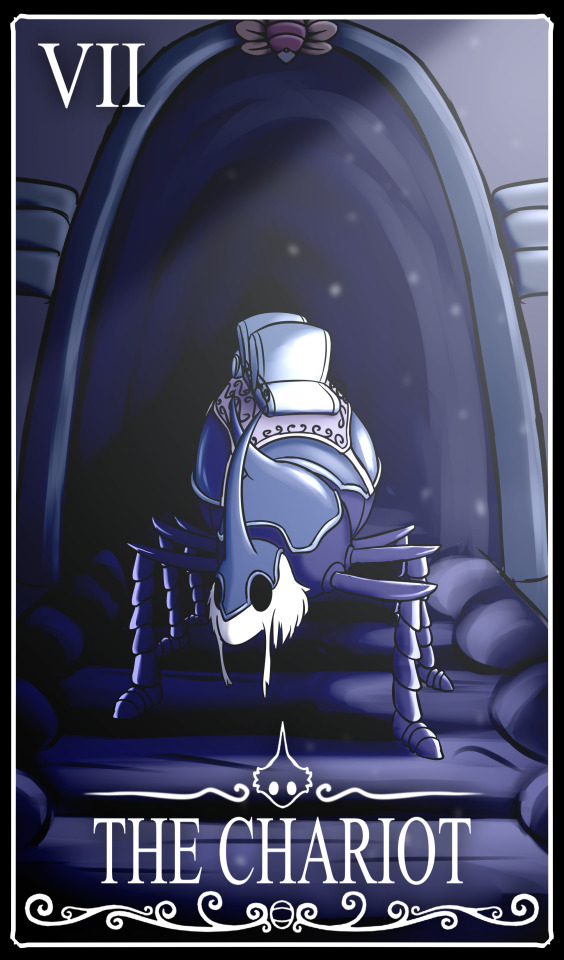
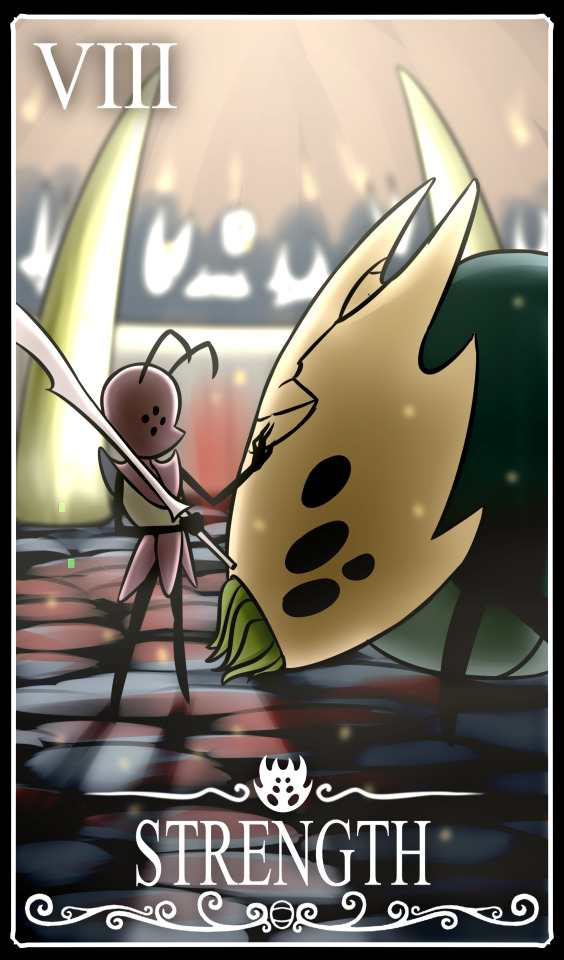
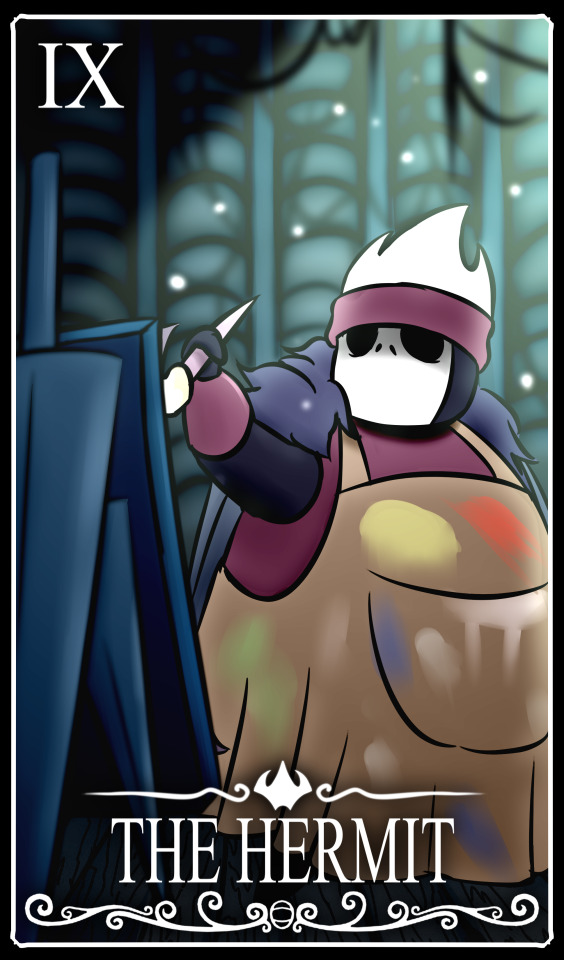
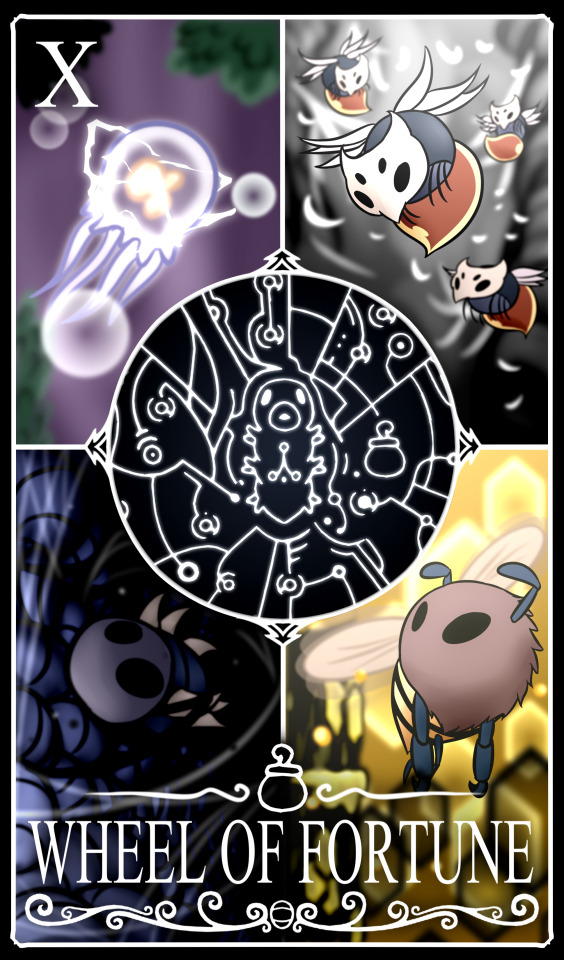
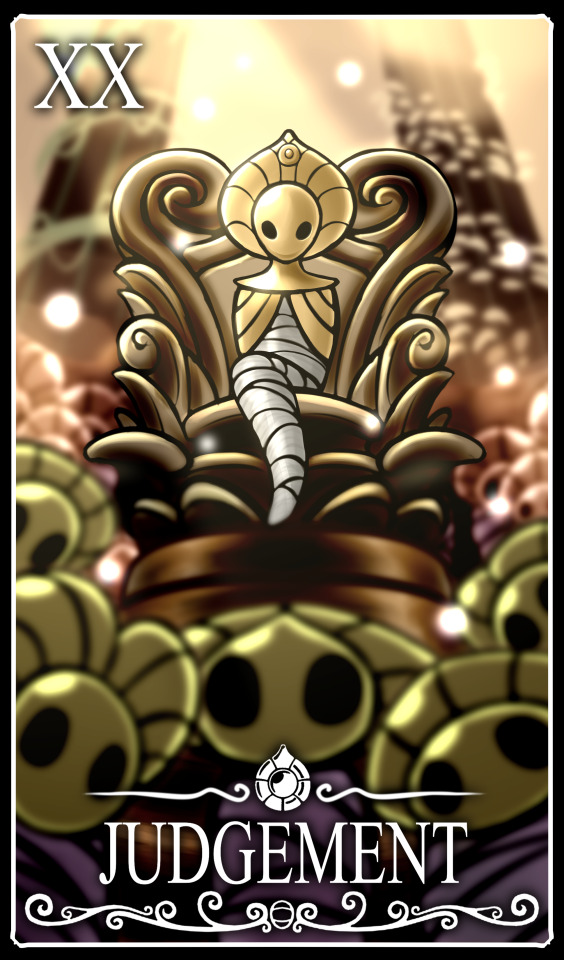
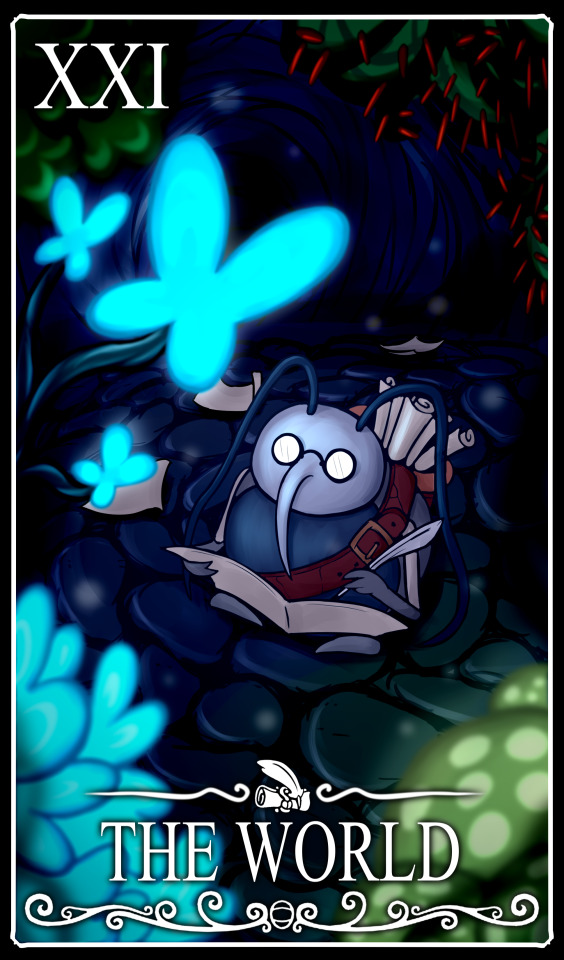
Hey w'sup! LimeHazard here, with my first Tumblr post! Starting off with my Hollow Knigth Major Arcana I started way back in 2018.
#hollow knight#tarot cards#indie games#major arcana#team cherry#hollow knight art#quirrel#snail shaman#hollow knight seer#white lady#pale king#moss prophet#leg eater#hollow knight divine#the last stag#god tamer#nailmaster sheo#hollow knight grub#god seeker#cornifer
331 notes
·
View notes
Text

Quick drawing of Ki’ushapo's horse from The Navigator's Children. Kind of inspired by Donato Giancola's take on the sithi horse tack for the Grim Oak Press editions of memory sorrow and thorn, but I also did my own stuff.
The horse is inspired by the american saddlebred and akhal-teke breeds! I did it straight from memory so the anatomy might be a little wonky :)
#Ki’ushapo#tad williams#osten ard#the last kings of osten ard#memory sorrow and thorn#the navigators children#horses#horse#digital art#digital painting#my art#the stag speaks
33 notes
·
View notes